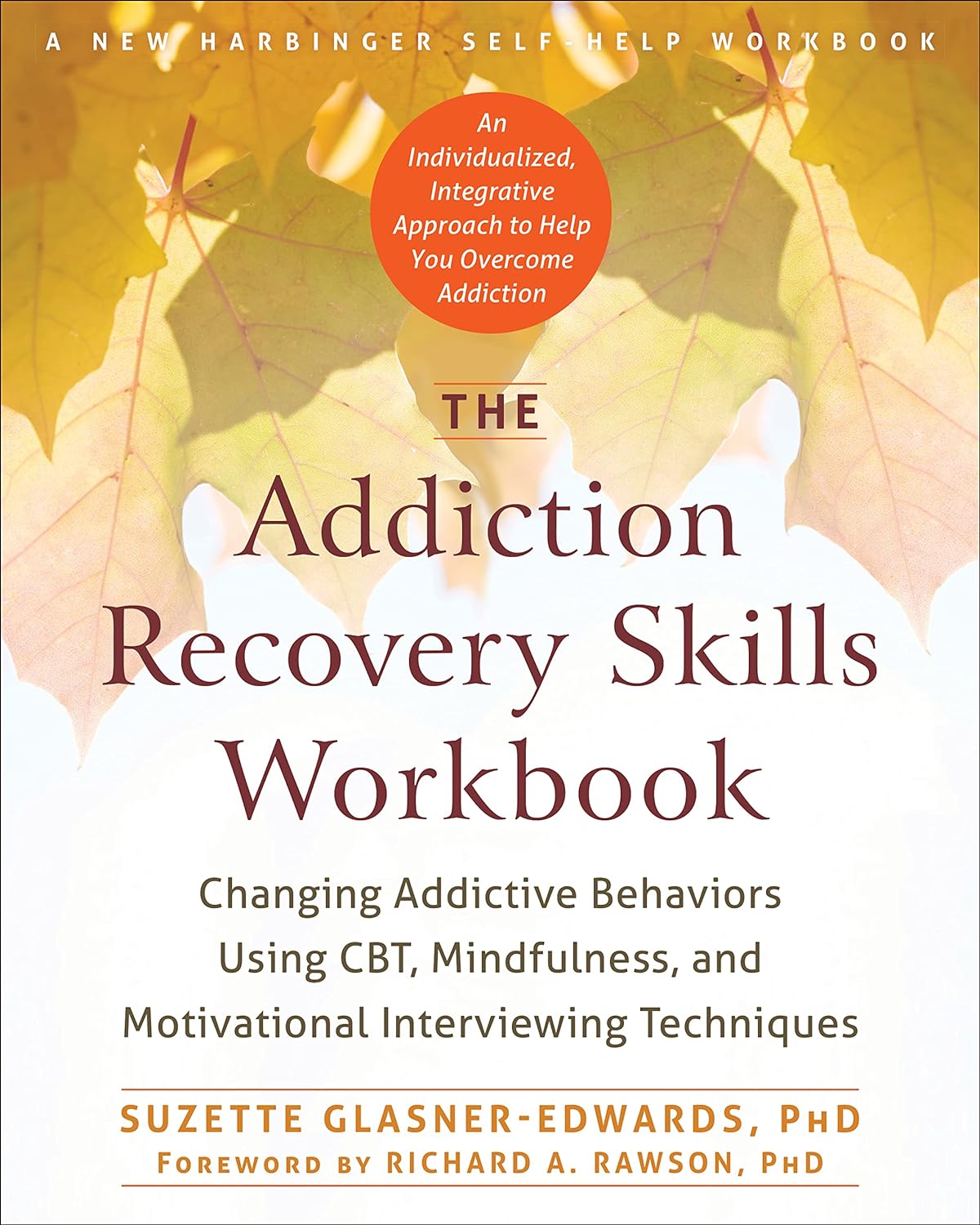
The Addiction Recovery Skills Workbook
This self-help workbook integrates scientific knowledge about the causes and most effective, evidence-based treatments for addictions. In Part I, the definition of addiction is reviewed, coupled with exercises to enable the reader to identify personal risk factors for addiction, signs and symptoms, and to understand the neurobiology and learned aspects of addictive behaviors. Behavioral and pharmacological treatment approaches are described. In lay friendly terms, Dr. Glasner-Edwards demystifies the reasons why addicts find themselves in a trap, repeating behaviors that are devastatingly self-destructive, and offers practical tools to enable the addict to achieve and sustain a life of recovery. In Part II, Dr. Glasner-Edwards presents cognitive behavioral, motivational, and mindfulness based skills through a combination of description, case examples, and interactive exercises, culminating with the development of an individualized recovery plan for the reader based on their experience using them in the workbook.
My Account Info
Manage your Membership information, email preferences, and more.
Journals
Membership in ABCT grants you access to three journals.
Convention
We are now accepting Abstract submissions for Continuing Education Ticketed Sessions at the 2024 ABCT Convention in Philadelphia, PA.
My Account Info
Manage your Membership information, email preferences, and more.
Journals
Membership in ABCT grants you access to three journals.
Convention
We are now accepting Abstract submissions for Continuing Education Ticketed Sessions at the 2024 ABCT Convention in Philadelphia, PA.
Editorial Reviews
Editorial Reviews:
“A cutting-edge, comprehensive, and interactive approach to the science of addiction recovery, written with great respect and compassion for the reader. Anyone struggling with the demons of addiction will find real help here, and hope.”
—Terri Cheney, author of the New York Times bestseller Manic
“The Addiction Recovery Skills Workbook is an excellent translation of modern science into practical skills development. From explaining the basic brain changes associated with the development of addiction to laying out a systematic path to behavioral change and recovery, Glasner-Edwards has taken the very best of addiction science and turned it into common sense and step-by-step instructions. I think this workbook will be as important for families and friends of addicted individuals as for those affected directly. Either way, this is a powerful and practical tool to aid recovery.”
—A. Thomas McLellan, founder and chairman of the board of the Treatment Research Institute, and former deputy director of the White House Office of National Drug Control Policy
“In creating The Addiction Recovery Skills Workbook, Glasner-Edwards has developed a resource that is at the cutting edge of recovery from addiction. In a respectful, direct, and clear way, she provides readers with key tools necessary to build the motivation to change, learn the skills needed to change, and apply those skills to achieving and maintaining change. Glasner-Edwards does a wonderful job of integrating the three most critical innovations in evidence-based approaches to treatment in the last fifty years: cognitive behavioral therapy (CBT), motivational enhancement, and mindful observation. There has been excellent research in all three areas demonstrating their value in aiding individuals in achieving their goals to be clean and sober, and Glasner-Edwards has created a resource that will be a wonderful tool for anyone addressing substance use problems. I anticipate this workbook will become a standard in the field.”
—John R. McQuaid, PhD, professor of clinical psychology at the University of California, San Francisco; associate chief of mental health for clinical administration at the San Francisco VA Medical Center; and coauthor of Peaceful Mind
“As one of America’s most knowledgeable addiction scientists, Suzette Glasner-Edwards writes with clarity and authority about the state of the art of treatment for addiction, a devastating disease that affects millions of people and families. Glasner-Edwards explains the complex science of addiction in terms that everyone can understand. Most important, she provides guidance to help the afflicted overcome this illness. This book will help end the stigma of addiction and it will save lives.”
—David Sheff, journalist and New York Times best-selling author of Clean and the memoir Beautiful Boy
“In this self-care book, Glasner-Edwards provides a much-needed addition to the substance abuse treatment field by providing a hopeful and highly accessible workbook for people struggling with substance abuse and addiction. This book explains the mystery of addiction and how to communicate with addiction treatment providers. It offers a range of interactive evidence-based therapy tools and techniques to achieve self-directed behavioral change. It integrates several important approaches, including cognitive behavioral therapy (CBT), mindfulness, and motivational interviewing, giving individuals powerful tools to tackle this devastating illness.”
—Karen Miotto, MD, clinical professor in the department of psychiatry and biobehavioral sciences at the University of California, Los Angeles (UCLA), and director of the UCLA Addiction Medicine Clinic
“I have worked in clinical addictions research for over fifteen years, and I can honestly say that this is no ordinary self-help workbook. Glasner-Edwards has expertly integrated the powerful combination of cognitive behavioral therap
About the Author(s)
Suzette Glasner-Edwards
Suzette Glasner-Edwards, Ph.D. is an Associate Professor at the University of California, in the Department of Psychiatry and Biobehavioral Sciences. She received her Ph.D. from the University of Minnesota and completed her post-doctoral education at University of California at San...
Read MoreBack
